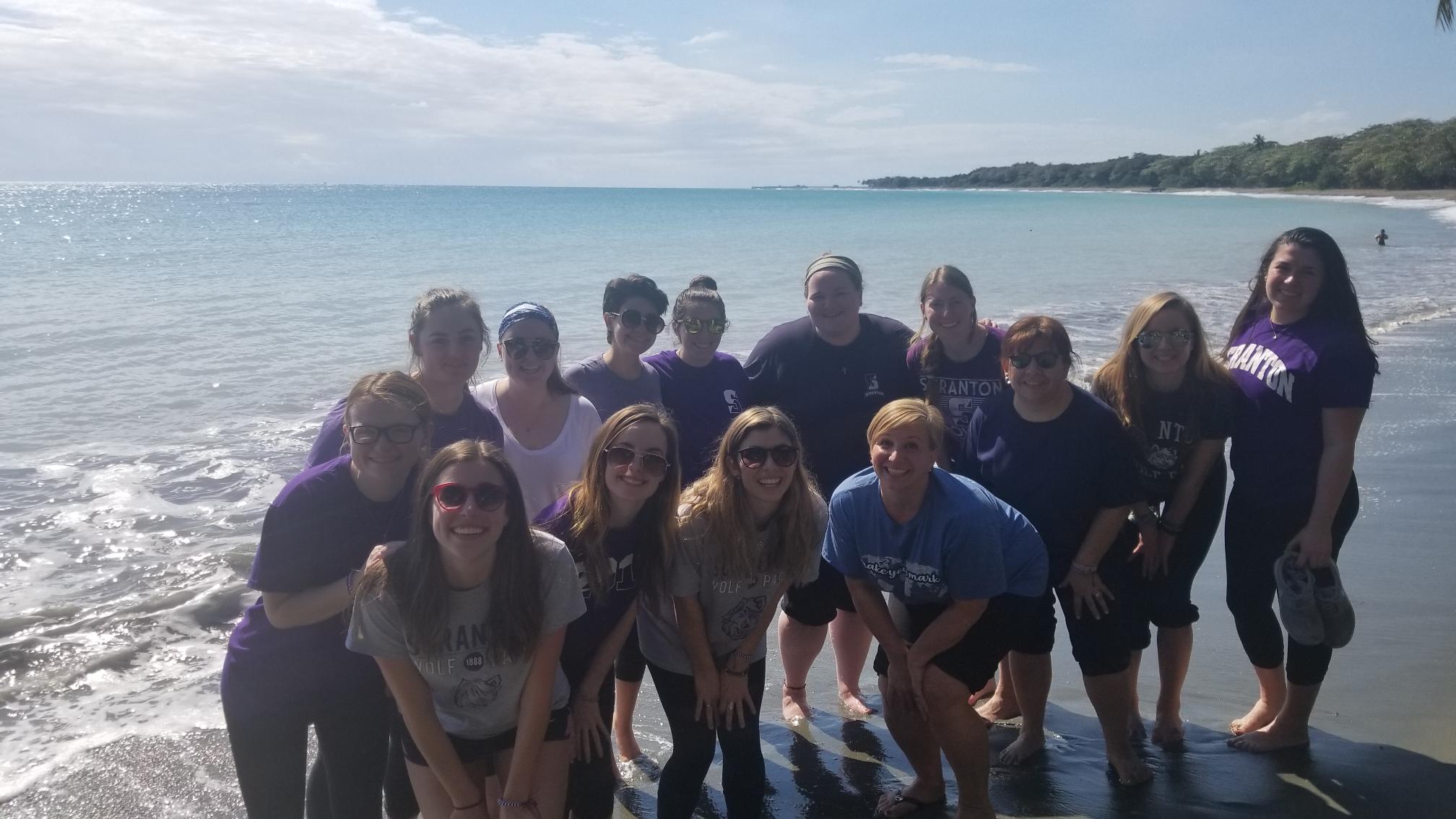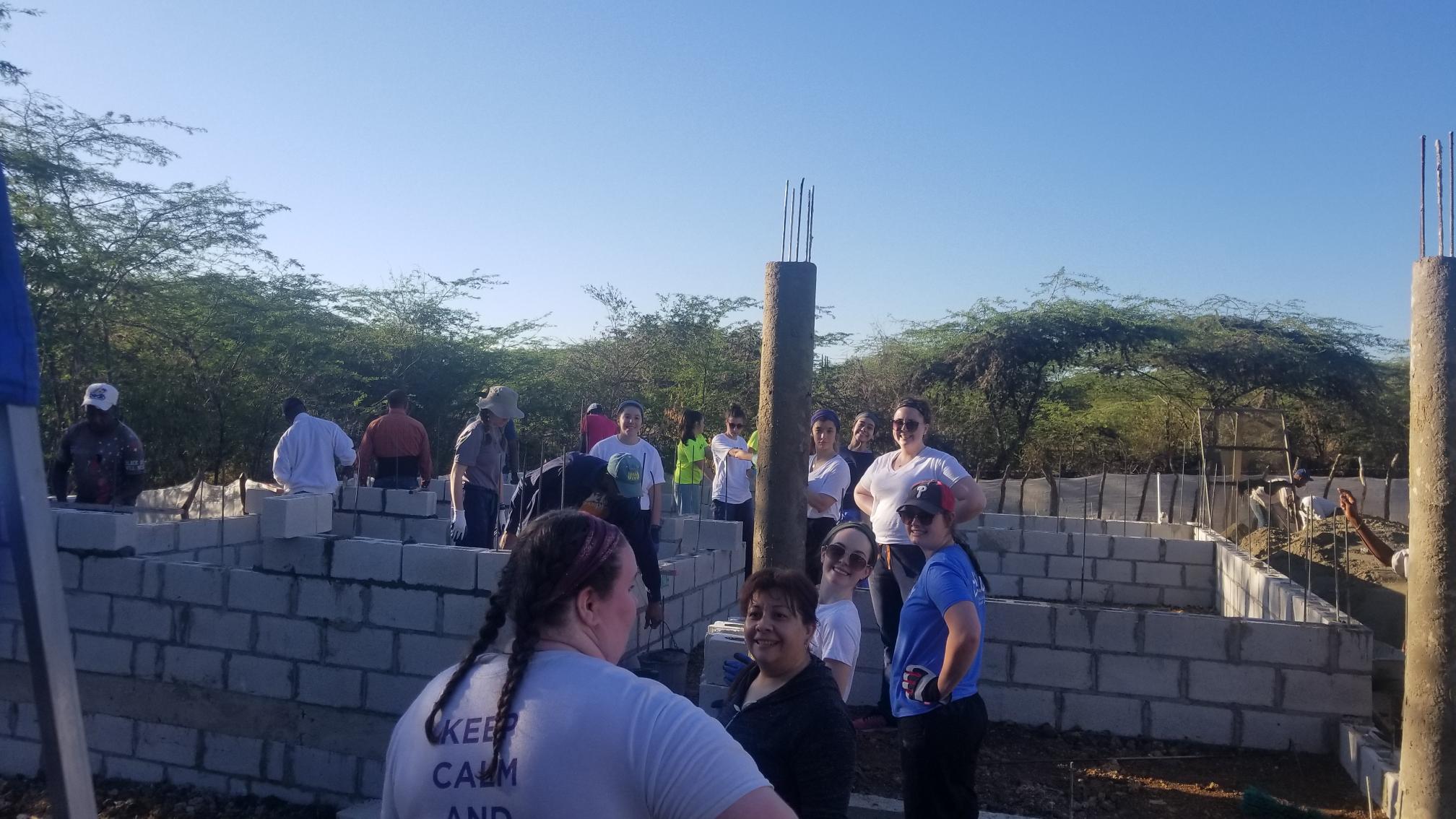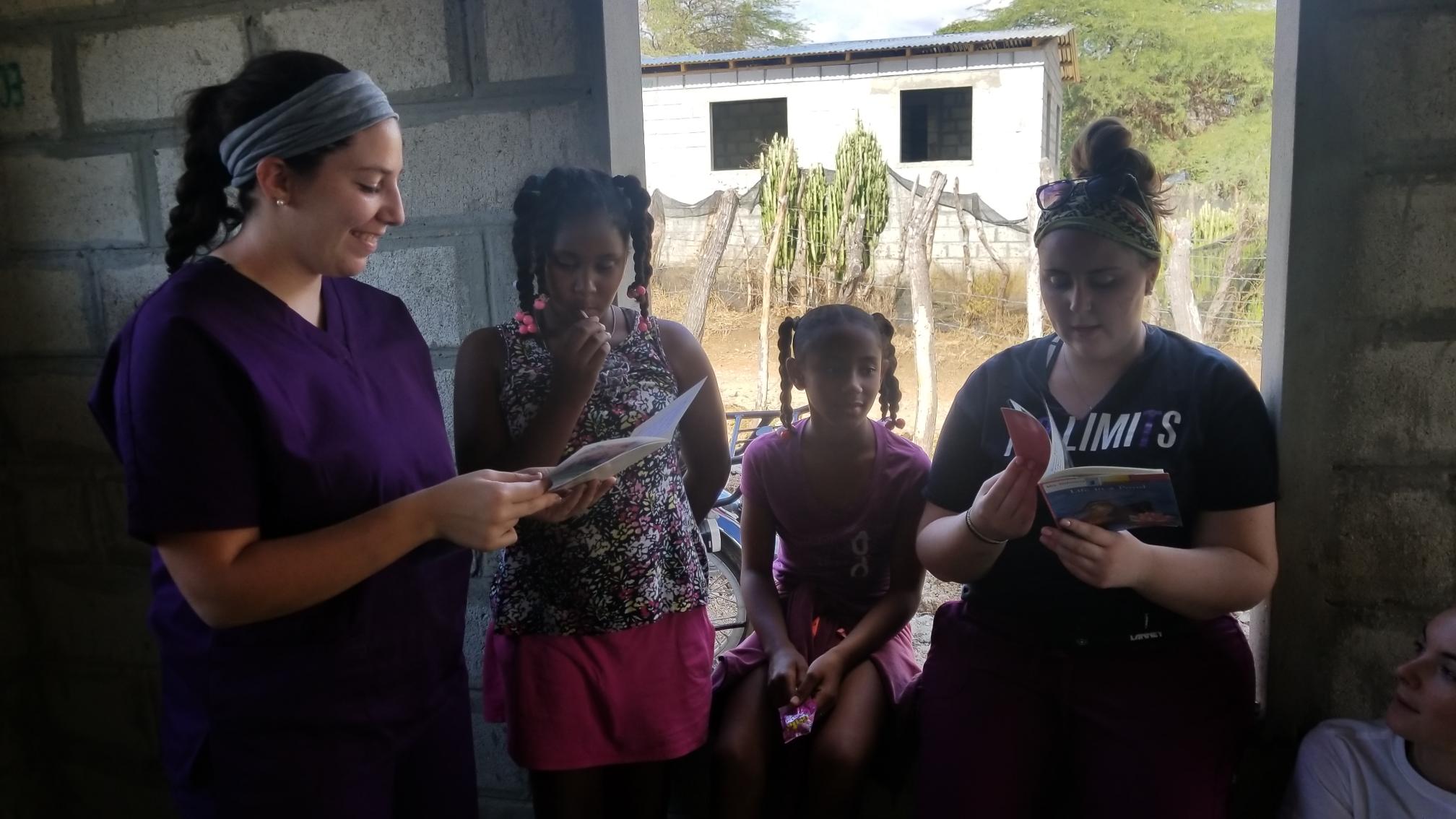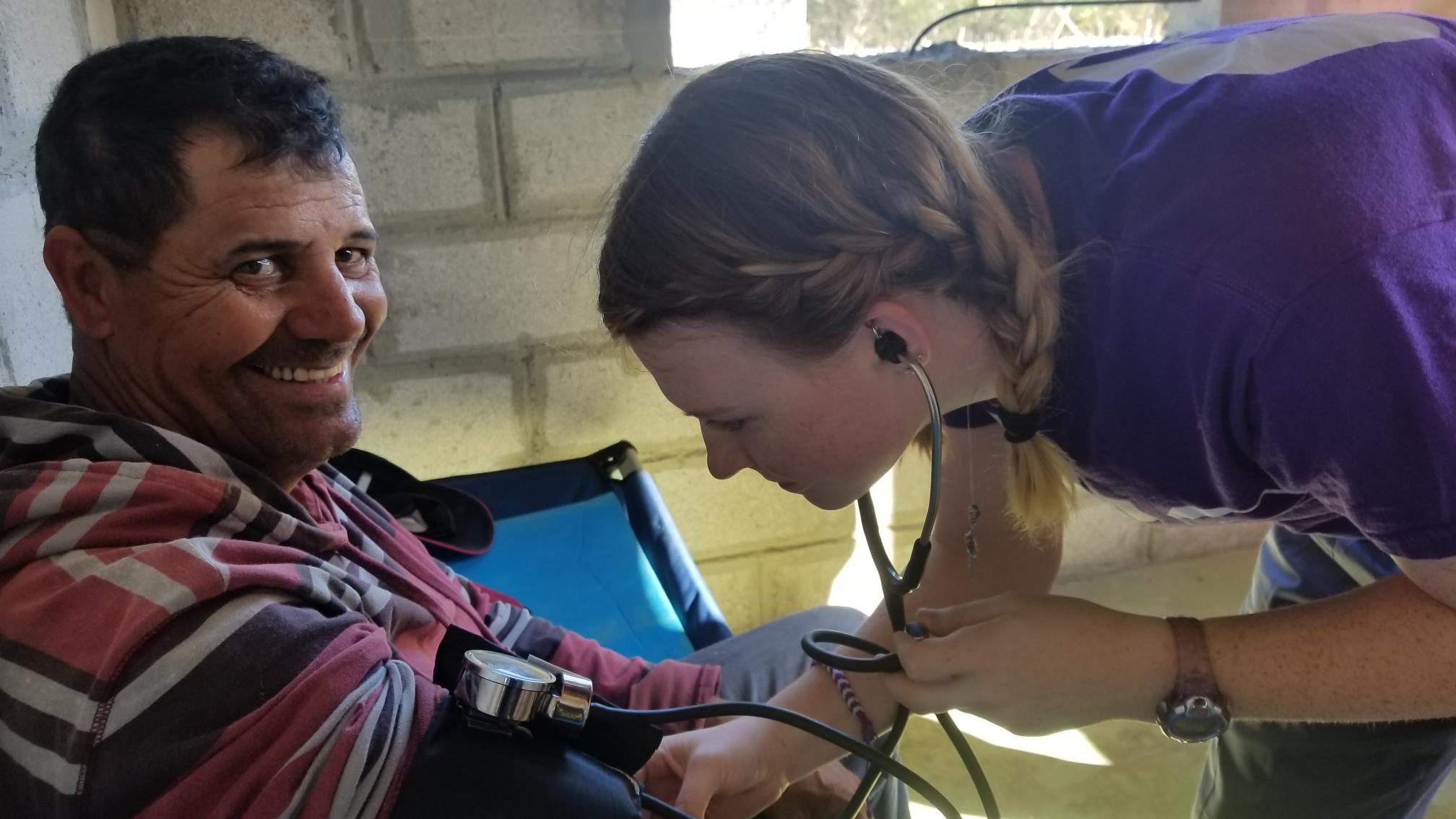Dominican Republic Intersession Reflection
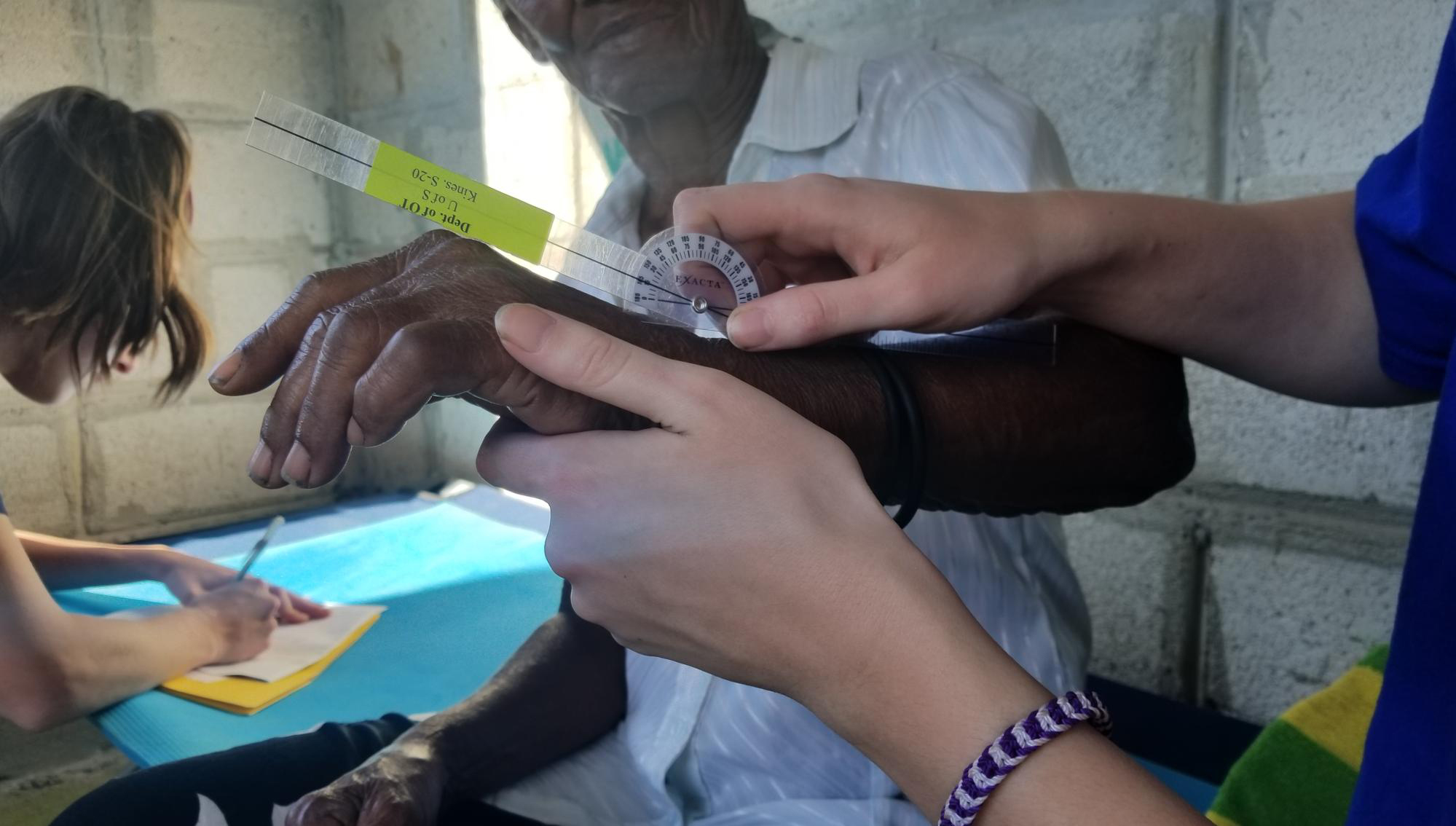
Our toes tapped nervously on the airport tile as we waited for the gate to open in the wee hours of the morning. Occupational therapy fieldworks can be intimidating without the additional pressures of building a home and bridging a language barrier in the Dominican Republic. Cambiando Vidas (Changing Lives) constructs houses for deserving families in San Juan while simultaneously encouraging community support and personal responsibility. The organization’s founder Jose collaborated with Dr. Chandra Dombroski to arrange this special trip for the O.T. students to build a home and host a pop-up clinic. Cambiando Vidas certainly lived up to its influential name.
Upon our arrival to the site, a modest foundation and layout of a house greeted us. We were quick to throw ourselves into the chaos of passing
In the pop-up clinic, our supervisors — Drs. Chandra Dombroski and Julia Guzman — divided and conquered responsibilities. Julia primarily translated for clients’ intakes and Chandra assisted with evaluations and treatment guidance. As students, we struggled with the weight of providing the services these wonderful clients deserved. We quickly learned the challenges of a language barrier and necessary adaptations to interventions. The multitude of thank-yous after just taking vitals motivated our efforts. One older woman with an improperly healed wrist fracture was content just talking about her pain; she tried very hard to comprehend our broken Spanish recommendations. She hugged us tightly after discharge and said, “Thank God for you girls.” We were fortunate enough to also observe at a local rehabilitation center. Though complete strangers, the therapists warmly welcomed and incorporated us into treatment sessions effortlessly. Their generosity and broad kindness will not be easily forgotten. The course of this fieldwork experience taught us so much about what we knew, what we could learn in a week, and what research we need to complete upon our return. Our desire to be better professionals reinvigorated by the kindness and obstacles we faced.
As our week concluded, a house-warming ceremony with the family and community members combined many words of encouragement, blessings, and hope for a better future. We came to the Dominican Republic with open
What course are you taking and where are you taking it?
This intersession I enrolled in my third fieldwork course in the Dominican Republic.
What is your year and major?
I am a senior in the occupational therapy program.
What made you want to study there?
I wanted to be a part of an experience that applied my new therapeutic knowledge in a Jesuit volunteer type of setting. I have done ISP once before but wanted to return to an international program with healthcare in mind.
What has been your favorite part of the trip?
My favorite part of the trip had to be the people. Our group was nervous about how we’d be received especially without being fluent in Spanish. We quickly learned how welcoming, generous, and understanding the workers, clients, and local therapists would be to us. We received hugs after taking vitals, shared laughs while building a home, and related to therapists through observation and demonstration. I’ve never felt more comfortable abroad.
What have you learned from this experience?
I learned so much about flexibility and thinking on your toes. We faced numerous obstacles between building a home and the pop-up clinic. I had to be ready to run to my next task and pick it up quickly when needed. I had to work with my peers on how to educate different clients in another language or provide exercises through demonstrations. Not one moment was dull or boring, so we had to get creative and be patient with ourselves.
Has it changed you? How?
My eyes have been opened to international differences in occupational therapy. Across borders, some techniques remain the same while others are extremely varied due to resources, circumstances, and needs. I recognize now the value in things I may not understand from afar, but after having hands-on experience, can learn why it’s developed down that path.
What advice would you give to college students interested in studying abroad?
If financially and academically able, STUDY ABROAD. My advice would be to travel to a place you’re willing to adapt to and learn more about. If you don’t give up what is your “normal”, your experience abroad will be so limited. The people you meet will be so appreciative when you show interest in their language, culture, history, and traditions.
Why do you think it's important to have a "global" experience in college?
Broadening your horizons through studying abroad can add perspective to your understanding of the world and sense of self. We live our lives rarely reflecting on the little things that make up our society and culture. Exploring other countries allows us to question the smallest aspects of our interactions with others and compare the dynamics we’ve experienced. It gives us the opportunity to understand cultural differences and how that affects relationships personally, professionally and politically.


